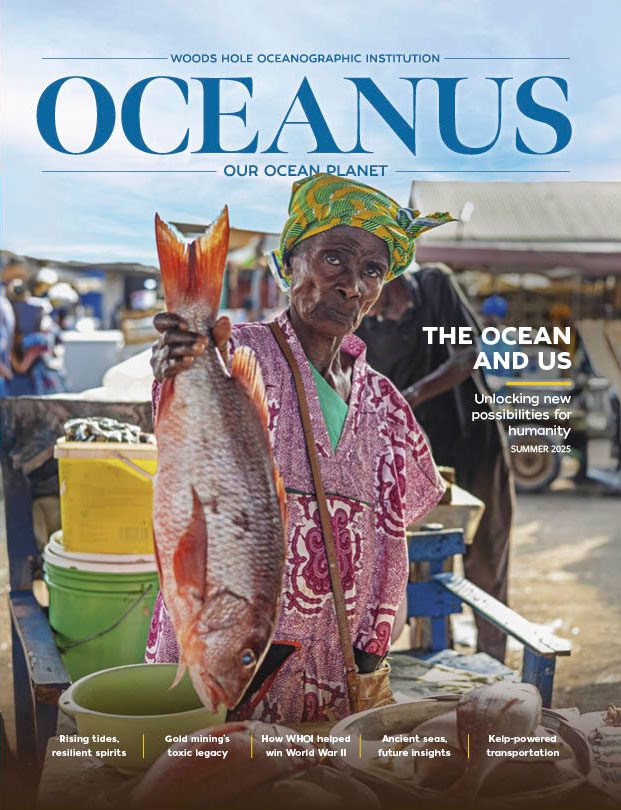Sharks & Other Fish
Climate change ‘bait and switch’ threatens sharks and rays
Great white sharks are hanging out in the twilight zone and scientists don’t know why
Shark chased off by seals along Cape Cod, school of bluefish spotted rubbing up against a shark
WATCH: New England-based researchers share rare video from ocean’s ‘Twilight Zone’
Climate change takes habitat from big fish, the ocean’s key predators
Four steps to curb ‘ocean roadkill’
Climate change threatening shark habitats
Why the creators of ‘Jaws’ regretted making sharks the monsters
Cape Cod shark research: Local scientists helping teachers bring great white research into the classroom
‘Rolls-Royce’ of shark cameras can extend to turtles, whales, seals and squid for ocean’s big picture
A high-tech SharkCam invented by a Cape Cod researcher offers an unprecedented window into the lives of the ocean’s toothy predators, and can also extend to seals, whales, turtles and squid for a big-picture view of precious ecosystems and how to protect them. “These vehicles, these underwater robots that look like highly complex systems are just an extension of yourself to be able go where people can’t go, and there’s no limitation to what they can do,” said Amy Kukulya, research engineer and principal investigator at Woods Hole Oceanographic Institution.
Sharks and the ocean’s twilight zone: Some female great white sharks can deep dive for hours
Much of the shark focus around the Cape is on great whites roaming close to the shoreline as they prowl for seals, but researchers are finding out that several sharks are actually diving deep into the twilight zone out in the middle of the ocean. Scientists at Woods Hole Oceanographic Institution on Cape Cod are researching the sharks’ deep diving behavior and how sharks’ bodies have evolved to handle these deeper conditions. They’re learning that deep diving is far more frequent and extensive across species than previously thought, said Simon Thorrold, a senior scientist in the biology department at the Woods Hole Oceanographic Institution.
New technology expected to play a key role in shark research
In November, Skomal and the Atlantic White Shark Conservancy fitted two sharks with new satellite positioning tags developed by a team at Woods Hole Oceanographic Institution that can be fastened to a white shark’s fin without having to capture it and drill mounting holes.
Researchers tag free-swimming sharks off Cape Cod using minimally invasive device
Researchers and scientists were recently able to use fin-mounted location tracking tags on free-swimming sharks off of Cape Cod while using a device that allowed them to tag the sharks without capturing them.
‘SharkCam’ films basking sharks off Scotland
A robot camera has been used in UK seas for the first time to monitor the behaviour of basking sharks. WHOI’s SharkCam was deployed off the west coast of Scotland where the sharks gather to breed after migrating from waters off west Africa.
A Marine Heatwave Is Warming Up The Ocean Along The East Coast
Here & Now‘s Jeremy Hobson talks to Glen Gawarkiewicz, an oceanographer at Woods Hole Oceanographic Institution, about why the ocean temperatures are warming as well as what it means for ocean life and weather patterns.
Hot ocean waters along East Coast are drawing in ‘weird’ fish and supercharging hurricane season
Warm waters are a major concern with Hurricane Isaias forecast to ride up the Eastern Seaboard. Glen Gawarkiewicz, an oceanographer at WHOI, describes Gulf Stream fish being caught off Block Island, R.I., in January 2017 and increases in the “rate and amount” of species like mahi-mahi passing through.
Shark sightings are up, along with ocean temperatures. Here’s what to do if you encounter a shark.
“If they preyed on humans, there would be humans dead everywhere,” said Simon R. Thorrold, a biologist at WHOI in Massachusetts. “It would be a bloodbath out there.”
Katharine, the Great White Shark Who Ghosted Her Trackers, Resurfaces
Simon R. Thorrold, a senior scientist in the biology department at WHOI in Falmouth, Mass., said it was “not crazy surprising” that a signal was picked up.
Climate change threatens everyone’s favorite little fish
The well-being of the colorful clownfish of “Finding Nemo” fame is closely tied to its habitat among the sea anemone, according to a 10-year study by an international team of scientists. The little fish does not appear to have the ability to adapt to the rapid environmental effects of climate change.
Scientists Team With Fishermen on Tracking Technology
Scientists from the Center for Coastal Studies and the Woods Hole Oceanographic Institution are working with local commercial fishermen to install video monitoring equipment on gillnets.
On the Trail of Sea Life with an Autonomous Underwater Vehicle
quotes Amy Kukulya, Kara Dodge
Study: Great white sharks are swimming farther and deeper
mentions WHOI
picked up by other major news outlets: The Washington Post, ABC News, CBS Boston
Great white shark GPS tag recovered along NC coast
mentions WHOI
Whale sharks draw attention of researchers
quotes Simon Thorrold and mentions WHOI






